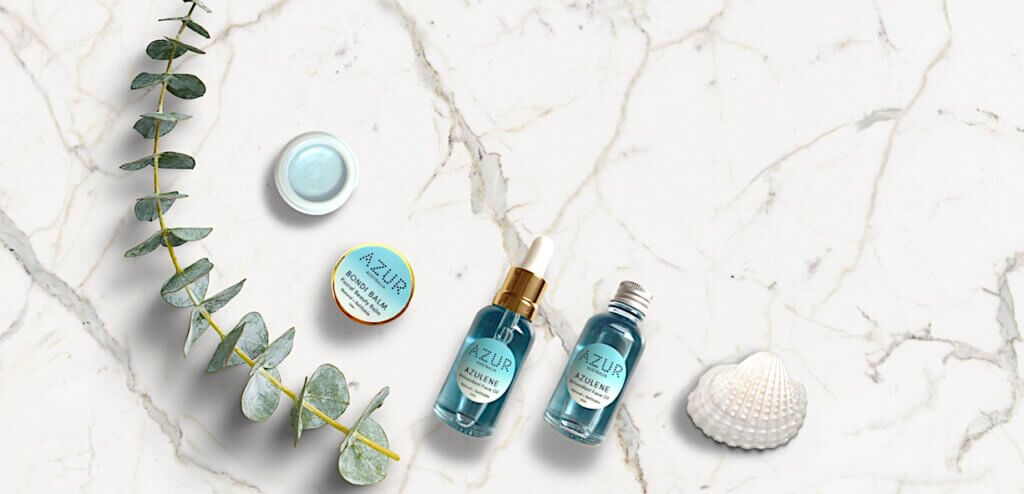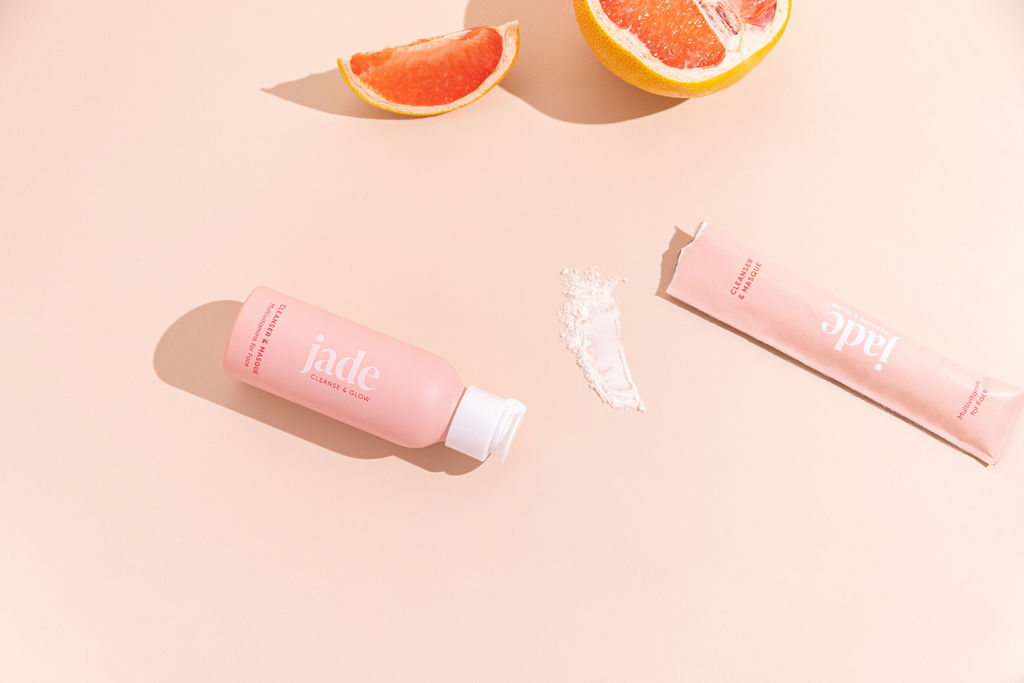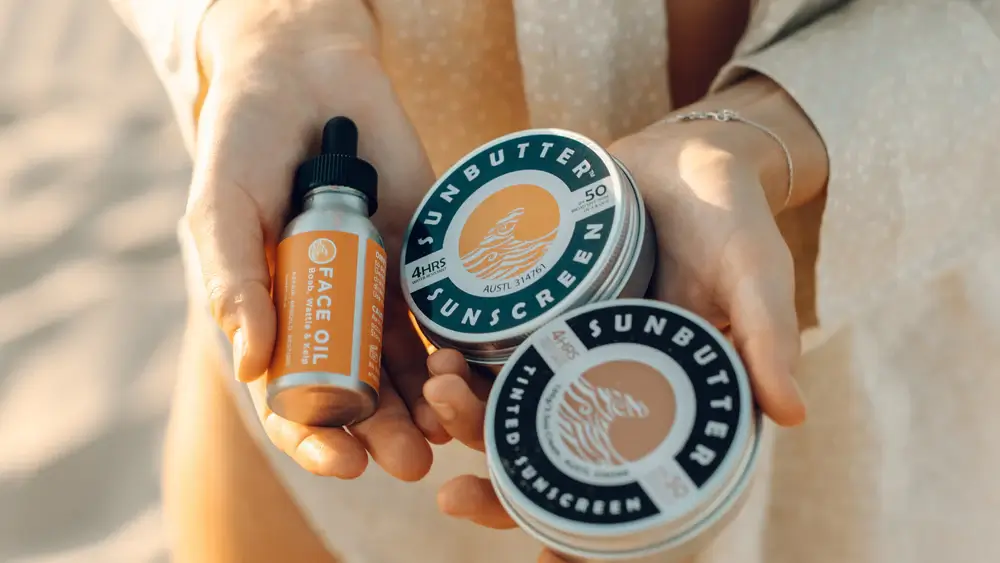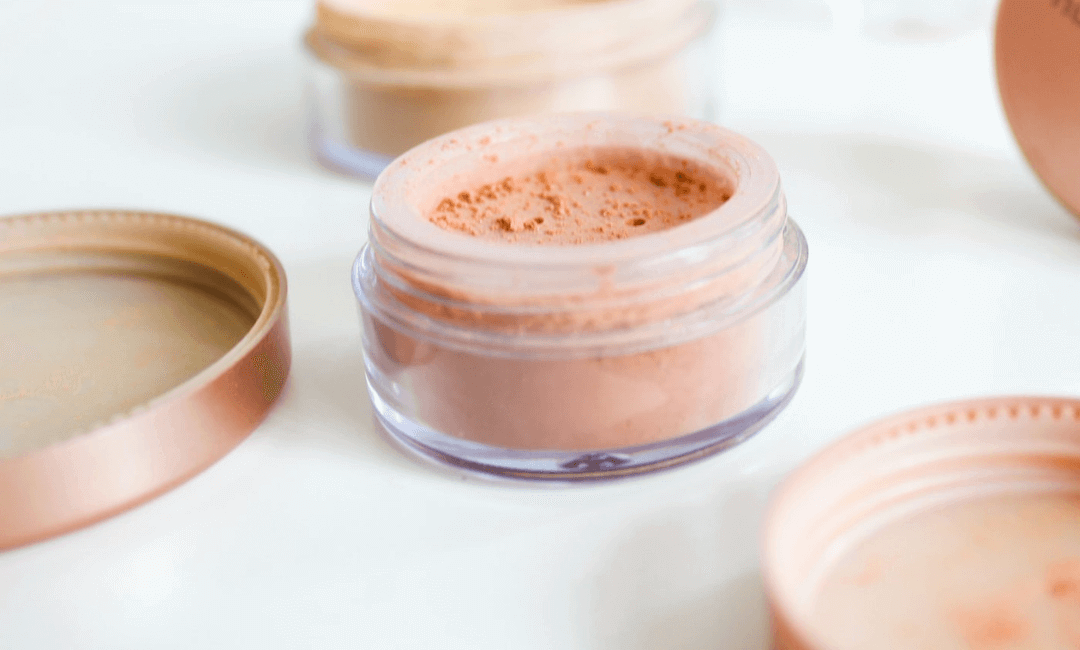Why You Should Switch to Plastic Free Skincare

Plastic free skincare is a term used for eco-friendly skincare products which don’t contain plastics in the products themselves or in the packaging.
The Problem with ‘Recyclable’ Plastic Skincare Packaging
Plastic in skincare is a serious problem for our environment and health. Only 12% of plastic actually gets recycled due to issues with contamination. (Source: ABC) Many types of plastics actually cannot be recycled, and those that can, can only be recycled 2-3 times before the quality deteriorates and makes them unusable. The well-recognised “chasing arrows” symbols on plastic containers do not indicate that packaging is recyclable. The numbers inside the triangle between 1 and 6 indicate the plastic type, and only numbers 1 and 2 can usually be recycled.
Plastic packaging and ingredients such as plastic exfoliating microbeads end up in the oceans, and are ingested by marine animals and fish. Plastic makes it into human food chains from fish that’s eaten, causing health problems for humans as well as animals. Plastics leach hazardous chemicals, causing a range of health issues including cancer. (Source: Bplastic)
What are the Best Plastic Free Skincare Packaging Options?
Sustainable skincare products are packaged in non-plastic materials like glass, aluminium, cardboard or paper, and have a closed loop or circular aspect where the packaging doesn’t end up in landfill. Glass, aluminium and stainless steel are infinitely recyclable, meaning they can be recycled limitless times. Paper or cardboard are also more easily recycled than plastic, and also break down and biodegrade.
Some products focus on being free of single use plastics, meaning they may include plastic components, or can be made entirely of plastic, but are intended to be reused as the products are refillable. Many products are made of ‘bio’ plastics, or plastics which claim to be biodegradable. These types of plastics can actually be more harmful to the environment than standard plastics, as many of them don’t entirely degrade, and break down into harmful ‘microplastics’…
Microplastics in Skincare
Microplastics are tiny plastic particles that are less than five millimetres in size. There are two types of microplastics that come from the skincare industry;
- Microplastics created when plastic skincare packaging breaks down into smaller particles – for example plastic bottles floating in the oceans and exposed to UV from sunlight over time can break down into microplastics as they break up and degrade.
- Microplastics contained within skincare products themselves, such as tiny plastic exfoliating ‘beads’ found in exfoliants, scrubs, and toothpaste, to provide an abrasive action. Examples of microbeads in cosmetics are:
-
-
- Common Microbead Ingredients Polyethylene (PE)
- Polyethylene terephthalate (PET)
- Nylon (PA) Polypropylene (PP)
- Polymethyl methacrylate (PMMA)
-
-
Why are Microplastics used in Skincare?
The big answer is that plastic is cheap, so microplastics make a cheap abrasive ingredient in products. Natural materials such as ground nut shells are a healthier and more eco-friendly choice for exfoliants, and are increasingly being used in place of microplastics, as awareness and concern about microplastics increases.
Why are Microplastics in Skincare Bad for the Oceans?
When skincare products containing microplastics are washed off the skin, the microplastics can enter the water supply, either through the drains in our homes or through wastewater treatment plants. From there, they can make their way into rivers, lakes, and oceans, where they can be ingested by aquatic animals like fish and turtles. This can cause serious harm to these animals, as the microplastics can block their digestive tracts and prevent them from getting the nutrients they need to survive.
Why are Microplastics in Skincare Bad for Health?
One of the main concerns about microplastics in skincare products is their impact on human health. When microplastics are used in skin care products, they can be easily absorbed by the skin and enter the bloodstream. Once they are in the bloodstream, they can travel to different parts of the body, including the liver, the spleen, and even the brain. This can cause a variety of health problems, such as inflammation, hormonal imbalances, and even organ damage.
Microplastics can also absorb toxic chemicals from the ocean and waterways, such as pesticides and herbicides, and then transfer these chemicals to the animals that ingest them. This can have a cascading effect on the food chain, as the contaminated animals can be eaten by larger predators, who can then become contaminated as well.
Single-use Plastic in Skincare Packaging
Most skincare packaging uses single-use plastics. This means the plastic is used once then disposed of, either in landfill or recycling. As we know, recycling plastic is far from a perfect system, and with Australians using 130 kg of plastic per person each year, up to 130,000 tonnes of plastic will find its way into our waterways and the ocean. (Source: WWF)
So it’s clear that we can’t rely on recycling despite many brands now offering their own recycling programs; ideally we should opt for zero waste skincare solutions that are circular or ‘closed loop’, so they don’t create any waste at the end of their life cycle.
Plastic is widely used as it is cheap and lightweight to transport, and if it’s thrown away by the consumer it means less expense for the company that made it, as they are not dealing with the ‘end of life’ of the packaging they produce. The only way this will end is when more consumers stop buying products packaged in plastic. Choosing sustainably packaged products in glass, aluminium and paper or cardboard supports businesses doing the right thing, so more businesses will become sustainable.
Related: 7 Best Plastic Free Eye Creams
What Types of Plastic Free Skincare Solutions are Available?
– Refillable skincare solutions where the packaging is kept and refilled either via pouches or bottles.
– Closed loop / circular skincare where no packaging waste is created – such as dissolvable or compostable packaging solutions, or re-use systems for used packaging where it’s sent back, sanitised and re-used.
– Solid skincare packaged in cardboard or paper that activates with water.
– Powder-based skincare packaged in cardboard or home compostable packaging that activates with water like powder face masks and exfoliants.
– Ocean friendly skincare made with all natural, organic and non toxic ingredients like sunscreens that don’t pollute waterways or kill coral. This term is often used to refer to the ingredients being ocean-friendly, but not always the packaging, so be aware.
Refillable Skincare
Refillable skincare can take several forms. It can be large refill containers in-store where customers take a container and refill it, or ‘refills’ which can be bought to fill up the original skincare bottle or jar when the product runs out. A key question to ask of refillable skincare is: what are the refill containers made from, and what happens to them after they’re used?
Types of skincare refills:
✅Returnable glass or aluminium refill bottles where the lid is aluminium and the original pump is kept, are a good choice as glass and aluminium are both infinitely recyclable, with higher recycling rates than plastic. Even better if there is the option to send empty bottles back to the company via carbon neutral post, to be sanitised and reused like Azur Pure Skincare’s closed loop refillable skincare system.
✅Compostable paper pouches for powder skincare products are a good sustainable choice as they can simply be composted at home or recycled with other paper and card. These materials break down naturally and don’t pollute waterways like plastic does.
❌ Plastic refill pouches aren’t sustainable unless they’re sent back and re-used
If refills come in plastic pouches, then while they may use less plastic than conventional packaging as they are thinner, unfortunately they are still not sustainable, as plastic pouches generally cannot be recycled. Even if they can, they are more likely to end up in waterways.
❌ Foil refill pouches have plastic lining so aren’t sustainable – the mixed materials also make them unrecyclable. No foil pouches exist that don’t contain plastic, sadly.

Solid Skincare
Solid skincare products often come in bars, like soap, and sometimes pastes. Some solids skincare examples are moisturiser bars made from solidified oils and waxes, or plastic free deodorant pastes or sticks. Solid or paste-based products can be rubbed on the skin directly. As they don’t contain water, they weigh less and are more easily transported. These products can be more easily packaged in non-plastic materials like tins or cardboard boxes.

Powder-based Waterless Skincare
Powder based skincare activates with water. It’s a great sustainable option if it’s packaged in cardboard or home compostable packaging. Some examples include powder based clay face masks, where water is added to make a clay paste, or foaming exfoliators or cleansers where water is added to lather up a foamy liquid to wash skin with.

Ocean Friendly Skincare
‘Ocean friendly skincare’ concerns the ingredients inside the product itself, as well as the packaging, which shouldn’t impact the ocean negatively by polluting it. The term is different to plastic-free skincare as it goes beyond the plastic content and also considers the ingredients of the products themselves; whether they contain harmful chemicals which cause problems for marine life like coral or fish if they get into our waterways.
The term ‘greywater safe’ refers to products which won’t contaminate waterways, land or drinking water with chemicals like triclosan, phthalates, parabens and silicones. So ‘ocean friendly’ can be considered to encapsulate both ‘plastic-free’ and ‘greywater safe’. Be aware that some ‘sustainable’ terms get used when they shouldn’t, so it’s important to be well informed – look at the ingredients, and research them using a site like EWG Skin Deep® Cosmetics Database, and look at the packaging and whether it contains single-use plastics. ‘Ocean Friendly’ is a term often used for products with safer ingredients, like natural reef-friendly sunscreen, but they can often be packaged using single-use plastics which are certainly not ocean friendly.

What is the Most Sustainable Option for Plastic-free Skincare?
The most sustainable plastic-free skincare choice takes into account all aspects of sustainability; environment, human and animal health. Here’s a quick checklist:
✅ Packaging – glass, aluminium or paper / cardboard
✅ Ingredients safe and natural
✅ Closed loop packaging system which doesn’t add to landfill
✅ Local to prevent air miles
❌ Single use plastic that might end up in the ocean
❌ Harmful ingredients like fragrance, PEGs (polyethylene glycols) methyl and propyl parabens, formaldehyde, phthalates, oxybenzone, triclosan or microplastics.
This article was written by Anna Chatburn, Founder of Azur Pure Skincare. Anna is a lifelong environmentalist and created Azur to provide a truly sustainable skincare range that’s natural, effective, and easy to use.
Azur Pure Skincare is a truly Ocean Friendly Refillable and Closed Loop Australian skincare brand, as every part of the packaging and ingredients has been carefully chosen for sustainability. Packaged in 99% glass and aluminium or paper with no single use plastics and no harmful chemicals, with refills made from compostable paper, or glass and aluminium bottles which can be returned via carbon neutral delivery then sanitised and re-used.
—
Discover more articles related to plastic free beauty.
Browse the I’m Plastic Free platform to discover zero waste skincare products.


